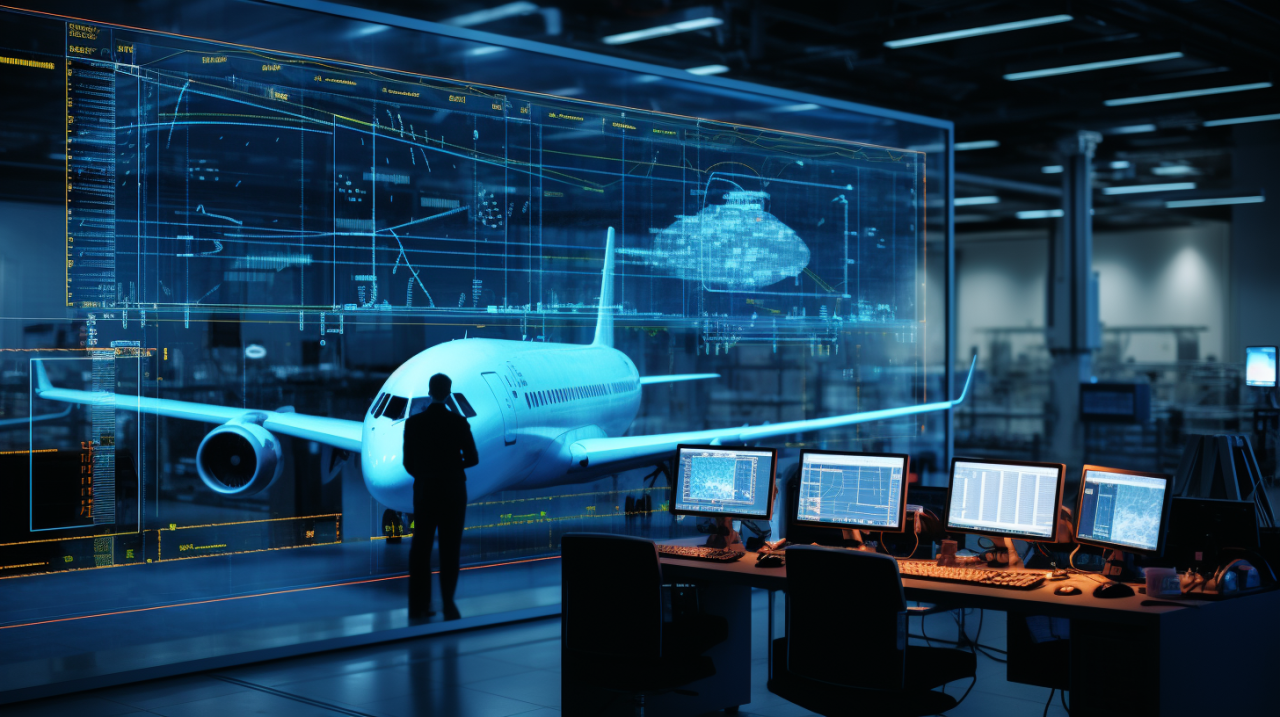The advent of Artificial Intelligence (AI) has revolutionized many industries, and the aerospace sector is no exception. At the forefront of these innovations is the use of AI in fuel efficiency optimization. This technological advancement not only promises to cut costs but also aims to reduce emissions and contribute to sustainability efforts globally.
In the initial stages, aerospace companies focused mainly on improving engine designs and aerodynamics. However, with the integration of AI, the possibilities for fuel efficiency have expanded exponentially. By leveraging AI, companies can analyze vast amounts of data to optimize fuel consumption and predict maintenance needs, ensuring that flights are both economical and environmentally friendly.

Understanding AI’s Role
AI functions as a powerful tool in the fuel efficiency optimization process. It uses algorithms to analyze data from various sensors and flight parameters, identifying the optimal conditions for fuel consumption. This includes factors such as altitude, speed, and engine performance.
By continuously learning from the data, AI systems can make real-time adjustments to flight operations, enhancing fuel efficiency without compromising safety. This is particularly beneficial in the aerospace industry, where even minor improvements can result in significant cost savings and environmental benefits.
Historical Context and Evolution
The journey of AI in fuel efficiency optimization began with the need to address rising fuel costs and environmental concerns. Over the years, technological advancements have allowed AI to evolve from simple data analysis tools to complex systems capable of making autonomous decisions.
This evolution was driven by the increasing availability of data and advancements in computing power. Today, AI systems are integral to various aspects of aerospace operations, from flight planning to maintenance scheduling.
AI-Powered Tools and Technologies
Some of the significant AI-powered tools used in the aerospace industry include predictive analytics, machine learning algorithms, and neural networks. These technologies work together to analyze data and provide actionable insights that improve fuel efficiency.
Applications in Commercial Aviation
In commercial aviation, AI-driven systems are used to optimize flight paths, reduce fuel consumption, and minimize delays. Airlines use AI to develop more efficient flight plans and make adjustments based on real-time weather conditions and traffic patterns.
Benefits of AI in Fuel Efficiency
The integration of AI in fuel efficiency optimization offers numerous benefits. Firstly, it reduces operational costs by minimizing fuel consumption. Secondly, it contributes to environmental sustainability by lowering carbon emissions. Lastly, it enhances safety by ensuring that flights operate under optimal conditions.
Cost Reduction
Fuel costs represent a significant portion of an airline’s operating expenses. By using AI to optimize fuel efficiency, airlines can significantly reduce their fuel consumption, leading to substantial cost savings.
Environmental Impact
Reducing fuel consumption also means reducing carbon emissions, which is crucial in the fight against climate change. By integrating AI into their operations, airlines can make a positive impact on the environment and contribute to global sustainability efforts.
Enhanced Safety
Safety is paramount in the aerospace industry. By using AI to continuously monitor and adjust flight parameters, airlines can enhance safety by ensuring that flights operate under optimal conditions.
Challenges and Considerations
While the benefits of AI in fuel efficiency optimization are clear, there are also challenges to consider. These include data privacy concerns, the need for robust cybersecurity measures, and the potential for job displacement.
Data Privacy
The use of AI involves collecting and analyzing vast amounts of data, raising concerns about data privacy. It is essential for companies to implement robust data protection measures to ensure the privacy and security of sensitive information.
Cybersecurity
As AI systems become more integral to aerospace operations, the need for robust cybersecurity measures increases. Protecting these systems from cyber threats is crucial to ensure the safety and reliability of flight operations.
Job Displacement
While AI offers numerous benefits, there is a concern that it could lead to job displacement. It is important for companies to find a balance between leveraging AI for efficiency and maintaining employment opportunities.
The Future of AI in Aerospace
The future of AI in fuel efficiency optimization looks promising. As technology continues to advance, AI systems will become even more sophisticated, offering greater efficiency and sustainability benefits.
For more information on AI’s role in the aerospace industry, you can visit this external resource.
Conclusion
In conclusion, AI in fuel efficiency optimization represents a significant advancement in the aerospace industry. By leveraging AI, companies can achieve cost savings, enhance safety, and contribute to environmental sustainability. As technology continues to evolve, the potential for AI in this field is limitless.

FAQs
What is AI in fuel efficiency optimization?
AI in fuel efficiency optimization refers to the use of artificial intelligence to analyze data and optimize fuel consumption in the aerospace industry.
How does AI optimize fuel efficiency?
AI optimizes fuel efficiency by analyzing data from various sensors and flight parameters, identifying the optimal conditions for fuel consumption, and making real-time adjustments to flight operations.
What are the benefits of AI in fuel efficiency optimization?
The benefits of AI in fuel efficiency optimization include cost reduction, enhanced safety, and a positive environmental impact through reduced carbon emissions.

